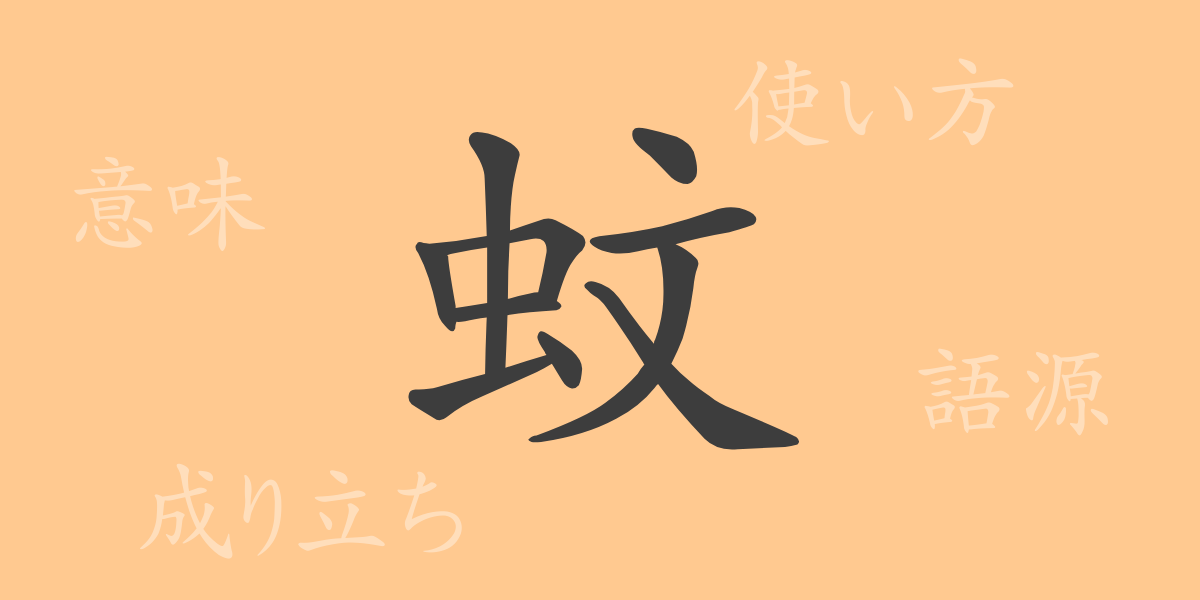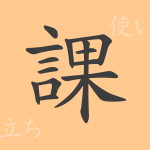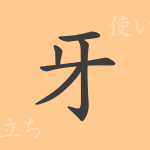The hum of mosquitoes mingling with the summer night breeze is one of Japan’s seasonal traditions. However, few may realize the rich cultural background hidden in the common ‘mosquito’ that surrounds us, from its origins to its meanings, and the expressions and idioms associated with it. This article delves into the Japanese Kanji ‘蚊’ (Ka), exploring its origin, meanings, and usage, as well as how it’s read, its number of strokes, and the words and phrases that include it, revealing its allure.
Origin of the Kanji for Mosquito (Etymology)
The Kanji ‘蚊’ has been used in China since ancient times. Its etymology combines the radical ‘虫’ (Musi), representing insects, with ‘文’ (Bun), representing its sound. In ancient China, this character was used to express the discomfort and disease risk brought by these tiny insects. In Japan, the word has been used since the Heian period, indicating its close connection to the lives of the Japanese people since ancient times.
Meaning and Usage of ‘蚊’
‘蚊’ commonly refers to blood-sucking insects. Beyond that, it is also used for items related to combating mosquitoes, such as ‘蚊帳’ (Kaya) mosquito nets and ‘蚊取り線香’ (Kato-ri-senkou) mosquito coils. Furthermore, it appears in metaphorical expressions like ‘蚊に刺されるような'(Ka-ni-sa-sareruyouna) to describe a slight pain or discomfort, showcasing its diverse applications.
How to Read ‘蚊’, Stroke Count, and Radical
The Kanji ‘蚊’ is included in the list of commonly used Kanji in Japan, appearing frequently in our daily lives.
- Reading: The Onyomi (Chinese reading) is ‘ブン’ (Bun), and the Kunyomi (Japanese reading) is ‘か’ (Ka).
- Stroke Count: ‘蚊’ consists of a total of 10 strokes.
- Radical: Its radical is ‘虫’ (Musi), and it is categorized under Kanji related to insects.
Idioms, Phrases, and Proverbs Using ‘蚊’ and Their Meanings
There are several idioms, phrases, and proverbs that include ‘蚊’ in the Japanese language. The idiom ‘蚊帳の外’ (Kaya-no-soto) is used to describe being left out or not involved in a matter. ‘蚊の鳴くような声’ (Ka-no-na-kuyouna-koe) refers to a very small or faint voice. These expressions reflect the Japanese people’s experiences and perceptions associated with mosquitoes.
Conclusion on ‘蚊’
In Japan, while mosquitoes are often seen as a symbol of summer, their presence is not merely as pests but also expressed in various forms within the Japanese language. By understanding the etymology, reading, stroke count, and radical, we can appreciate the historical and cultural background of the character ‘蚊’. Through idioms and phrases, we can also see how deeply mosquitoes are ingrained in the lives and sensibilities of the Japanese people. Thus, the seemingly trivial ‘mosquito’ holds rich meanings within the Japanese language and significantly influences our lives, a fact we can recognize anew.

























